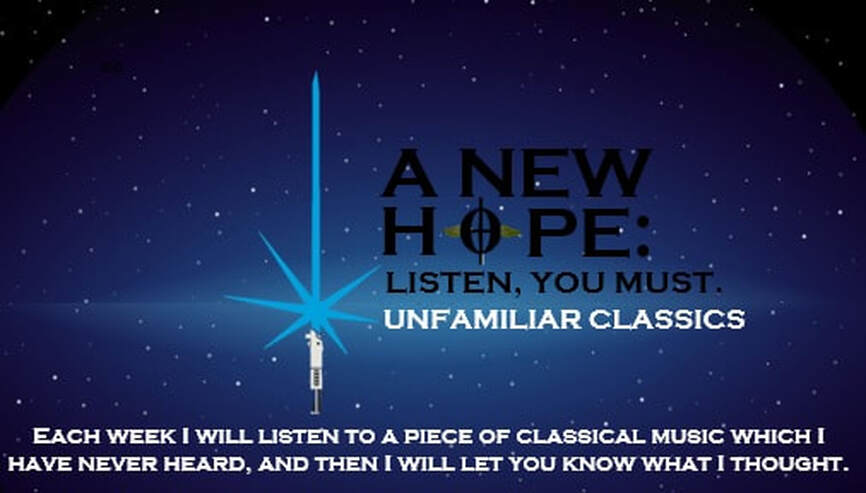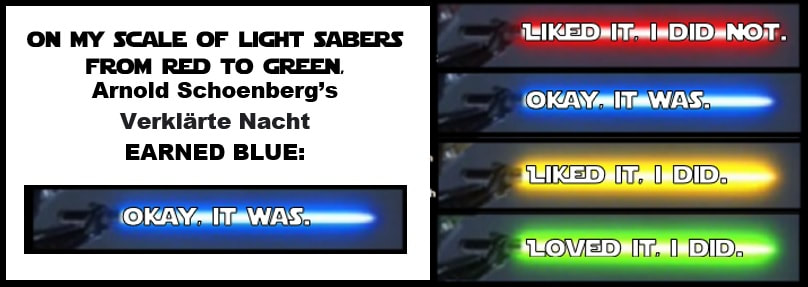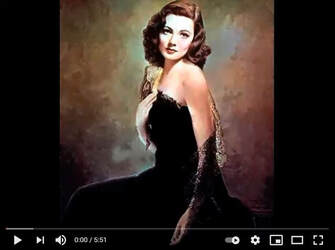I’ve always heard of Arnold Schoenberg, but I really don’t know much about him. I Google-searched his “greatest works,” and Verklärte Nacht, an early work of his written in 1899, came up first. One article I found described it as “his earliest important work,” so I thought I’d give it a try. “Verklärte Nacht” translates to “Transfigured Night,” and it was inspired by a poem of the same name HERE by German poet Richard Dehmel which describes a man and woman walking through a forest on a moonlit night. The woman shares a dark secret with her new lover -- that she bears the child of another man -- and the man reacts to her confession: Do not let the child you have conceived be a burden on your soul. Look, how brightly the universe shines! Another translation of the poem on Wikipedia is found HERE. Schoenberg’s work is written for a string sextet, and to be honest, it reminds me very much of a musical soundtrack one might hear to accompany a classic old movie, certainly a romance or perhaps some vintage film noir. In this case, it underscores a poem. Picture a scene where the leading man is clutching the ingenue or femme fatale as he is gazing into her tear-filled eyes -- like Bogart and Bergman at the end of “Casablanca.” Or maybe something like Detective Mark McPherson in “Laura” as he stares at and falls in love with the painted image of the murdered woman. Or perhaps a scene like Jimmy Stewart in Alfred Hitchcock’s “Vertigo” as John “Scottie” Ferguson, pleading with Judy Barton, played by Kim Novack, to change her style, her clothes and her hair so that she can resemble the mysterious – and murdered – Madeleine Elster.
By the way, when Hedy Lamar was asked why she had turned down the title role in the film “Laura,” she said, “They sent me the script, not the score.” Schoenberg’s work isn’t flawed or deficient. It is a gentle and pleasant work, and perhaps at times a bit gripping. It includes no real pyrotechnics – not that any are needed. However, it tends to border on the melodramatic, and there just isn’t anything particularly memorable about the melody lines. Schoenberg’s work does do an admirable job conveying the quiet, moonlight night as “Two people walk through a bare, cold wood,” the poems opening line, and I can imagine that listeners in 1899 felt as though Schoenberg might be pushing the world of classical music to a threshold of "a new kind of sound and a new way of listening" as described by Michael Clive for the Utah Symphony (HERE). I’m sure it was harmonically innovative in its day, though today it doesn’t quite have a modernistic push strong enough to test the boundaries of composition. Also, although the emotional story-telling is adequate, it doesn’t seem to reach the intensity of passion of the movie themes I described above. I’m going to be honest I could listen to the lush strings and intense emotion of Bernard Herrmann’s “Scene d’Amour” every day. Schoenberg’s “Verklärte Nacht”? I’ve heard it once, and -- as time goes by -- I think that may just be enough.
0 Comments
Leave a Reply. |
A New Hope:As the header above says, each week I will listen to a piece of classical music that I've never heard before, and then I will report out what I thought about it. Archives
September 2023
Categories
All
|



 RSS Feed
RSS Feed
